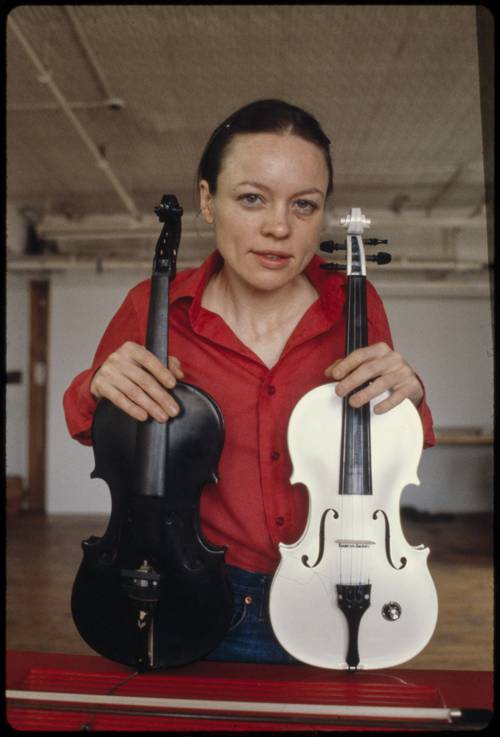
FAQ About The Influence of Avant-Garde Music on Culture

What is avant-garde music?
Avant-garde music is a genre characterized by innovative, experimental approaches that challenge the conventions of traditional music. It often pushes the boundaries of what is considered music by incorporating unconventional sounds, structures, and techniques.

How did avant-garde music originate?
Avant-garde music emerged in the early 20th century alongside other avant-garde movements in art and literature. It grew out of a desire to break free from established norms and explore new territories in creativity and expression.

What are some common characteristics of avant-garde music?
Common characteristics of avant-garde music include the use of experimental techniques, such as atonality, unusual time signatures, improvisation, and electronic manipulation. It often prioritizes artistic exploration over commercial viability.

Who are some notable avant-garde composers?
Notable avant-garde composers include John Cage, Karlheinz Stockhausen, and Pierre Boulez. These composers are known for their experimental works that have greatly influenced the development of modern music.

How has avant-garde music influenced contemporary music genres?
Avant-garde music has influenced numerous contemporary music genres by introducing new sound possibilities and encouraging creativity outside traditional structures. Genres like electronic music, jazz, and progressive rock have incorporated avant-garde elements to expand their sonic boundaries.

In what ways does avant-garde music challenge traditional norms?
Avant-garde music challenges traditional norms by eschewing standard musical forms and structures. It often includes dissonance and sounds that may not typically be recognized as 'musical,' forcing listeners to broaden their understanding of music.

Can avant-garde music impact popular culture?
Yes, avant-garde music can and has impacted popular culture by influencing artists who blend these experimental elements into mainstream music, creating new genres and expanding the commercial music landscape.

What is the relationship between avant-garde and experimental music?
While there is significant overlap, avant-garde music is often more focused on pushing artistic boundaries, whereas experimental music may not always aim to be radically innovative but still focuses on exploring new sounds and techniques.

How did John Cage contribute to avant-garde music?
John Cage was a pioneering avant-garde composer known for his innovative works that challenged traditional music concepts. One of his most famous pieces, '4′33″,' consists of performers not playing their instruments, focusing listeners' attention on environmental sounds.

What role did technology play in the evolution of avant-garde music?
Technology has played a crucial role in avant-garde music, enabling composers to experiment with electronic sounds, sampling, and digital manipulation, thus creating compositions that were not possible with traditional instruments alone.

Are there any recognizable subgenres within avant-garde music?
Yes, there are several subgenres within avant-garde music, including free jazz, electronic avant-garde, and avant-progressive rock. Each subgenre explores different aspects of experimentation and sound manipulation.

How does avant-garde music interact with other forms of art?
Avant-garde music frequently intersects with other art forms such as visual arts, dance, and theater, often blurring the lines between disciplines to create multidisciplinary performances that challenge audience perceptions.

Is avant-garde music accessible to all listeners?
Avant-garde music can be challenging for some listeners due to its departure from traditional harmonic and rhythmic structures. However, it offers a unique auditory experience that can be rewarding for those open to experimental sounds.

What impact did avant-garde music have during the 20th century?
During the 20th century, avant-garde music had a significant impact by inspiring movements in both high art and popular music, pushing the boundaries of what was considered possible in musical composition and performance.

How do avant-garde performances differ from traditional concerts?
Avant-garde performances often differ from traditional concerts by incorporating elements of improvisation, audience interaction, and multimedia, creating a more immersive and sometimes unpredictable experience.

What are some examples of avant-garde music influencing mainstream artists?
Mainstream artists like The Beatles, David Bowie, and Radiohead have drawn inspiration from avant-garde music, integrating experimental elements into their songs and thereby popularizing these concepts in more commercial settings.

Does avant-garde music include vocal elements?
Avant-garde music can include vocal elements; these may range from traditional singing to experimental vocal techniques such as spoken word, chanting, and unusual vocal sounds, all used to enhance the piece's experimental nature.

How does avant-garde music contribute to cultural diversity?
Avant-garde music contributes to cultural diversity by incorporating a wide range of influences and sounds from different cultures and traditions, often leading to a blending of styles that promotes cross-cultural understanding.

Can avant-garde music be used for film and media?
Yes, avant-garde music is often used in film and media, particularly in works seeking to create unconventional or intense atmospheres. Its experimental nature can enhance the emotional and narrative depth of visual media.

How can one start exploring avant-garde music?
To start exploring avant-garde music, listeners can begin with well-known composers like John Cage or Karlheinz Stockhausen. Exploring curated playlists, attending avant-garde performances, and watching documentaries about avant-garde music can also provide valuable insights.
